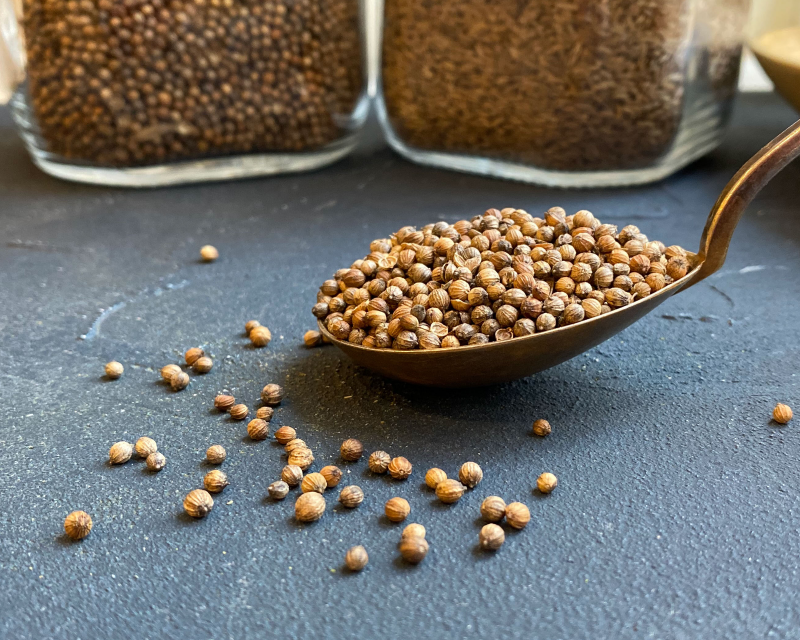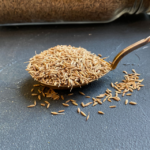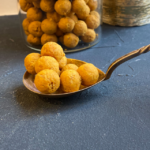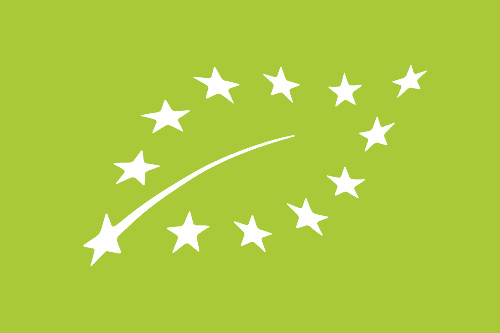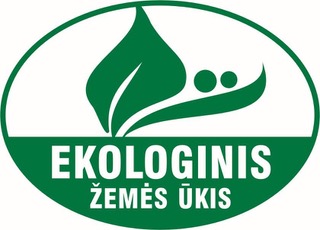Organic coriander seeds
From 1.80€
Coriander may be one of the most underrated herbs, despite its worldwide popularity as a culinary spice. Most people know coriander by its Spanish name, cilantro, and either love it or hate it.
Its aromatic scent is one of its many charms.
Believed to have originated in the Middle East and the Mediterranean, coriander can be found in regional cuisine around the world.
It belongs to the Umbelliferae (Apiaceae) plant family, has a thin stem and beautiful white or light pink flowers, and all parts of the plant are edible (young leaves and mature seeds). The plant itself is wonderfully delicate with a bright, earthy spring flavour. It is also known as Chinese parsley and in Sanskrit as “dhanyaka”, meaning “rich”.
Although it grows all over the world, coriander is not very fond of heat. It is an annual plant with a relatively short growing season, as it prefers cooler spring and autumn temperatures. Once established in light, well-drained soil in full sun, the plant self-seeds and germinates again the following spring.
Benefits and uses of coriander
Historically and traditionally, coriander has been used to relieve gastrointestinal discomfort.
It is used as a medicinal plant in Ayurveda. Energetically, in Ayurvedic terms, coriander is considered to be both a warming and a cooling herb, depending on the part of the plant used. The leaves are said to be cooling and can be made into a juice or poultice used to relieve mild skin irritation, while the seeds are slightly warming, which can aid digestion, absorption of nutrients, and help remove toxins.
Although mainly known for its strong affinity and benefits for the digestive system, coriander can also be beneficial for the urinary system and the lungs, as it helps to clear heat and consequently mucus.
Coriander seeds can be used as a seasoning in various marinades, stews and lentil dishes.
Tea recipe:
Fennel seeds, cumin seeds and coriander seeds are useful for supporting digestion and detoxification.
The recipe can be found here.
NOTE. The information contained herein should not be construed as a recommendation for treatment or other health issues. We encourage you to make personal decisions about your personal health, taking into account a wide range of sources of information.
Organic coriander seeds 100%
-
-

